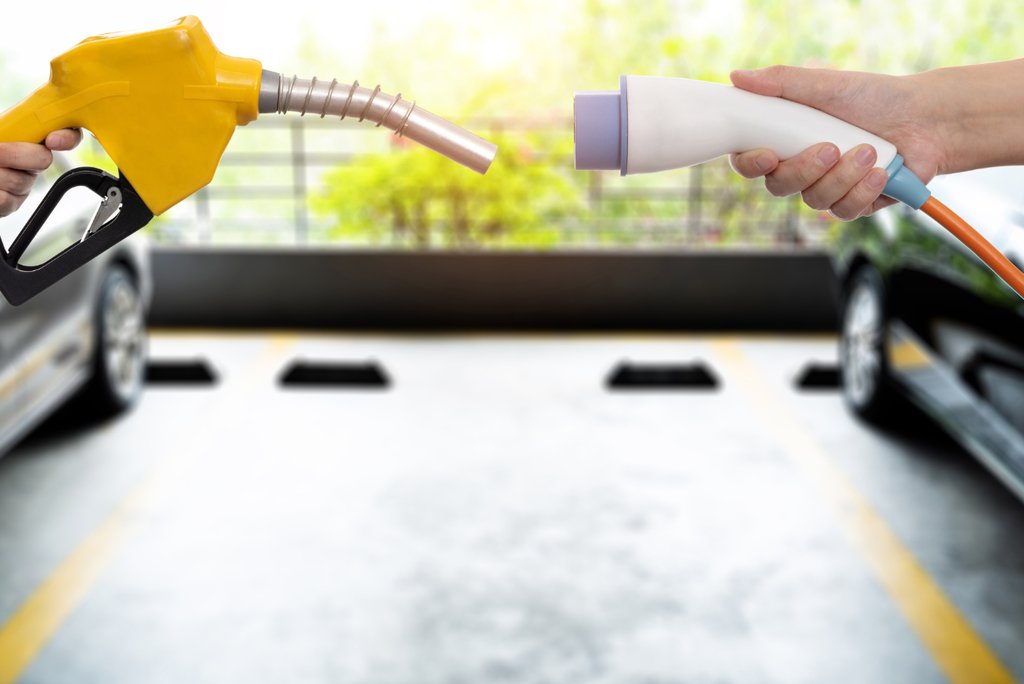For 90% of the internal combustion cars currently on Swiss roads, it is worth replacing them with an electric car. On behalf of the Swiss Federal Government, INFRAS calculated the greenhouse gas emissions along the life cycle of passenger cars and compared the CO2 savings potential for different scenarios.

Is it more climate-friendly to drive a roadworthy car with an internal combustion engine to the end of its life or to replace it now with an electric car? This question was analyzed in a study conducted by INFRAS on behalf of EnergieSchweiz and the Swiss Federal Office of Energy (SFOE) and supported by TCS.
The inefficiency of combustion engines and CO2 savings
The study concludes: For 90% of the gasoline and diesel cars on Swiss roads, replacing them with an electric car would make sense from a climate perspective if the new car was the same size. The higher the fuel consumption of the current internal combustion car, the more efficient the new electric car, and the more intensive and longer its use, the greater the potential greenhouse gas savings.
Life cycle takes a comprehensive look at emissions
The study compares the vehicle data of the five million cars currently on Swiss roads. The scope of analysis also includes production and disposal: For example, the calculations include emission categories such as direct emissions, emissions from electricity and fuel production, as well as emissions from production, maintenance and disposal.
Keep it or replace it? Sell it or dispose of it?
It is not only important whether a combustion car is replaced, but also what happens to it afterwards. INFRAS therefore analyzed different scenarios in the study:
- Option A: Keep the internal combustion car instead of replacing it
- Option B: Dispose of the internal combustion car and replace it with an electric car
- Option C: Sell the internal combustion car and replace it with an electric car
A calculation example with simple assumptions, including lifetime and lifetime mileage, shows the impact of the three options: Replacing the internal combustion car with an electric car and disposing of it (Option B) saves 7.5 metric tons of CO2 equivalent compared to Option A. Replacing the internal combustion car and reselling it (Option C) saves 11.25 metric tons of CO2 equivalent.
Rules of thumb for scientific decision making
When does it make sense to buy an electric car? What should you consider? The study provides rules of thumb that can be used to determine which choice makes the most sense in terms of the climate and your own driving habits. «If you drive a lot of kilometers per year, you should switch to an electric car from a climate perspective,» says Roberto Bianchetti, division manager and e-mobility expert at INFRAS. «From around 8,000 kilometers per year, the switch is almost always worthwhile, assuming an average vehicle life of 16 years.»
Study makes limits and dependencies transparent
Modeling for the study was challenging: «Option B with disposal of the internal combustion car could be calculated clearly and with robust results,» says Brian Cox, INFRAS division manager and co-author of the study. «With Option C, the key question is whether the car sold replaces an even older vehicle, or whether the purchase results in more vehicles on the road overall.» This question is too complex to model accurately in this study. The results therefore focus on Option B.
This is not the only limitation of the study - for example, the fact that it excludes economic aspects from the purchase decision or that it focuses on current vehicle models.
In spite of the many influencing factors and the high level of complexity, the answer to the purchase decision from a climate perspective remains clear: for around 90% of cars with internal combustion engines, it would be worthwhile to replace them immediately with an electric car.
More information:
- Final Report (in German)
- SFOE: Alternative drives
More articles by INFRAS on this topic:
- Electromobility Study: Battery facts and figures along the life cycle
- Charging in the Blue Zone: How to find a charging station near you (in German)
- Technology Study: How transit agencies stay on track with bus electrification
- Electrification roadmap for corporate fleets: How to make a successful transition to electric company cars

